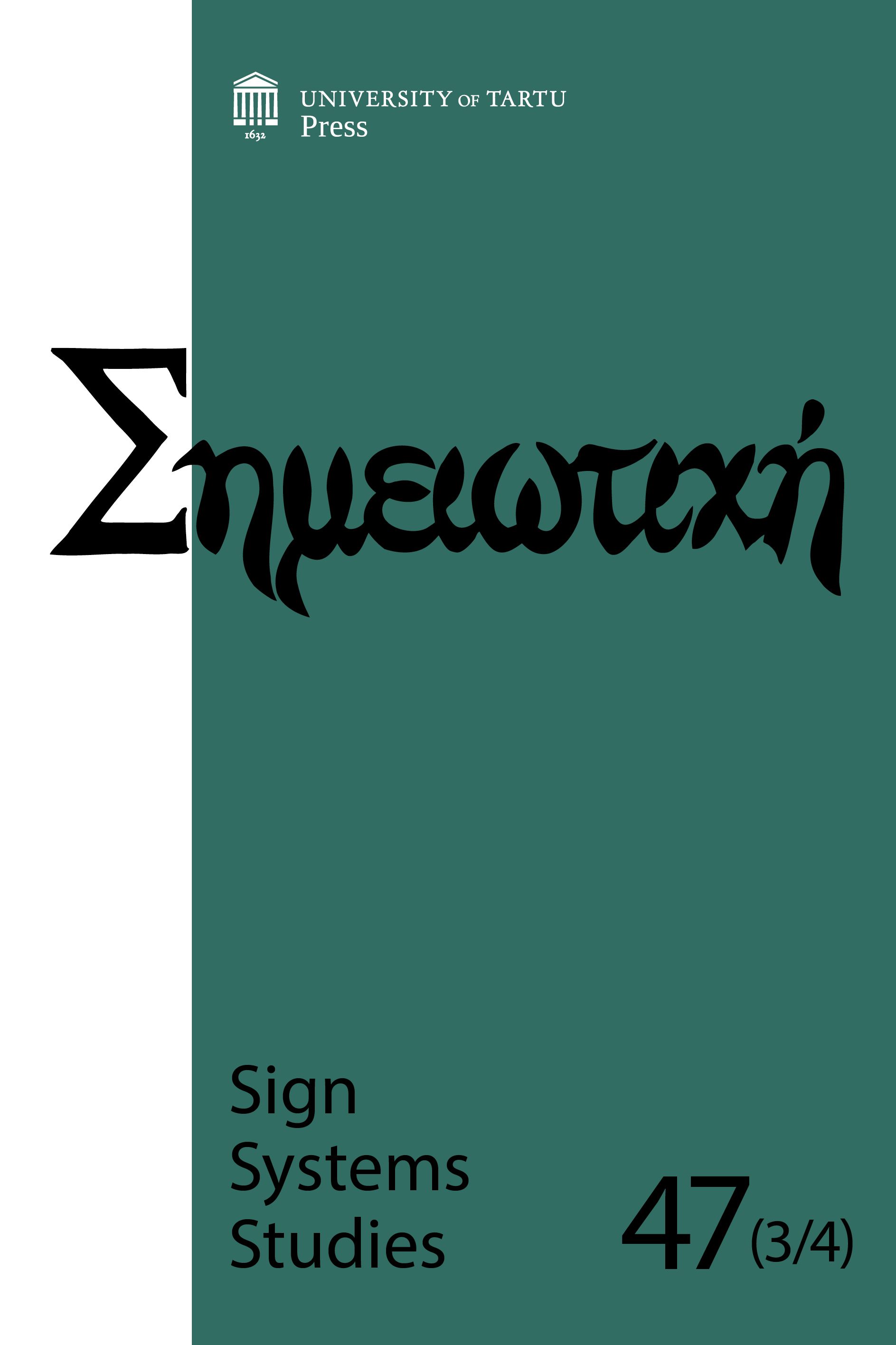Cartographies of the mind: Generalization and relevance in cognitive landscapes
DOI:
https://doi.org/10.12697/SSS.2019.47.3-4.02Keywords:
relevance, categorization, generalization, cognitive landscape, semiotic scaffolding, neurodynamics, indexAbstract
The problem of relevance, at individual agent scale – or how we decide what is adequate for our interpretation of the signs we encounter in the world – is a question that keeps reappearing in semiotics and other disciplines concerned with meaning. In this article I propose an approximation on relevance that conceives meaning as a trajectory across a cognitive landscape. Unlike conventional accounts on relevance, which presuppose mental processes built on feature-based representations, my proposal suggests conceiving cognition as a fluid and emergent field of attractors basins that become specified and modified when experiences appear, and conceiving meaning as a trajectory across the cognitive field. Consequently, I suggest that when cognitive landscapes better fit world experience, agents’ categorizations will be more relevant. My proposal is mainly supported by two approaches: the enactivist notion of structural coupling and the theories of dynamic neural populations of Walter Freeman III.


